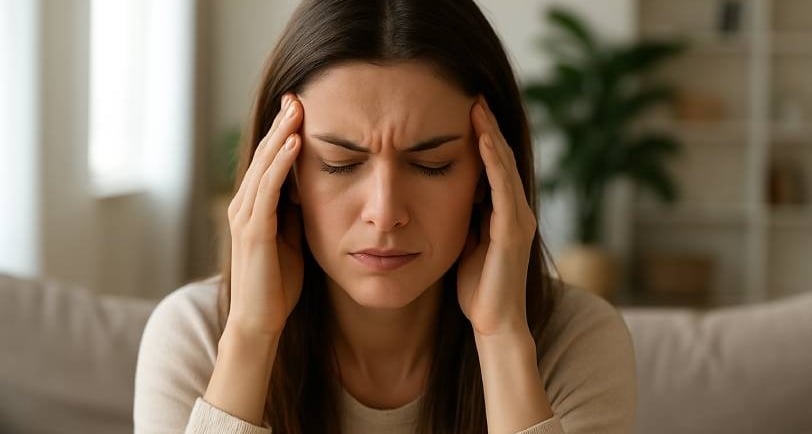Mental Health: A Central Focus in Combating Office Syndrome in 2025
In 2025, mental health has become a cornerstone of workplace wellness strategies worldwide. No longer viewed as a separate or secondary concern, mental well-being is now tightly woven into the broader framework of occupational health—especially in relation to office syndrome, a condition traditionally associated with physical strain but now increasingly recognized for its psychological components. As remote work, hybrid setups, and high-stress corporate environments become the norm, the need for mental health support has never been more urgent.
5/7/20254 min read


In 2025, mental health has become a cornerstone of workplace wellness strategies worldwide. No longer viewed as a separate or secondary concern, mental well-being is now tightly woven into the broader framework of occupational health—especially in relation to office syndrome, a condition traditionally associated with physical strain but now increasingly recognized for its psychological components. As remote work, hybrid setups, and high-stress corporate environments become the norm, the need for mental health support has never been more urgent.
This article explores how businesses are addressing mental health as part of a holistic solution to office syndrome, highlights recent research, shares recommendations, and discusses how professional massage therapy—particularly Thai massage—can play a supportive role.
Understanding Office Syndrome: The Mind-Body Connection
Office syndrome refers to a group of physical symptoms caused by prolonged sedentary work and poor ergonomics—stiff neck, shoulder pain, eye strain, back pain, and carpal tunnel issues. But the term has evolved to encompass mental health symptoms such as fatigue, irritability, poor concentration, anxiety, and burnout.
Several recent studies have validated the correlation between physical discomfort and mental strain. A 2023 meta-analysis from the International Journal of Occupational Medicine found that office syndrome significantly contributes to increased stress levels, decreased productivity, and higher rates of absenteeism. Employees experiencing chronic physical discomfort often develop psychosomatic symptoms, including depression and sleep disorders.
The Shift Toward Mental Health Integration in the Workplace
Companies are moving toward comprehensive wellness strategies that prioritize mental resilience. This shift includes policy changes, work culture reforms, and expanded access to mental health resources.
Recognizing the mental toll of constant connectivity, more organizations in 2025 have incorporated mental health days into paid leave. Employers encourage employees to take a break before symptoms of burnout become unmanageable. Flex hours and remote work options have also contributed to improved morale.
Corporate training now frequently includes sessions on emotional regulation, mindfulness meditation, and stress-reduction techniques. Studies by Harvard Business Review and Stanford’s Center for Compassion and Altruism Research have shown that employees trained in mindfulness practices report a significant reduction in perceived stress and an increase in focus and productivity.
In-house psychologists or partnerships with digital mental health platforms such as Calm, Headspace, and BetterHelp provide employees with easy access to counseling. Some businesses have even integrated AI-driven wellness bots to guide breathing exercises, monitor mood, and suggest cognitive behavioral tools throughout the day.
Modern offices now incorporate biophilic design—natural lighting, greenery, open layouts, and relaxation zones—to reduce cognitive fatigue. A 2024 study by the Journal of Environmental Psychology found a marked increase in job satisfaction among employees working in offices that adopt such elements.
Educational and Preventative Approaches
Educating employees about mental health has become a proactive method for tackling office syndrome. Regularly scheduled workshops and webinars inform staff about the early signs of burnout, mental health first aid, and techniques for managing workload and interpersonal conflict.
Mental health literacy programs are dismantling stigma and empowering employees to speak openly. A growing number of firms have begun including mental health education as part of their onboarding process. Additionally, team leaders are now trained to recognize signs of distress and guide team members to appropriate support systems.
Recommendations for Employers
If you’re an HR professional, business owner, or team leader, there are several best practices for creating a mentally healthy work environment.
Start by normalizing conversations around mental health. Internal newsletters, anonymous surveys, and suggestion boxes can encourage open dialogue. Providing access to mental health resources such as subsidized therapy sessions or subscriptions to wellness apps also makes a tangible difference.
Rethink productivity metrics. Instead of focusing solely on hours worked, shift the emphasis to the quality of output and the capacity for innovation. Reward collaboration, creativity, and balanced work habits.
Encourage regular breaks and physical movement. Brief stretch or meditation sessions during the day and office amenities like standing desks or relaxation pods can counter the physical stagnation linked to office syndrome.
Collaboration with wellness providers, such as local spas or yoga centers, allows companies to offer on-site massage therapy or fitness classes that contribute to both mental and physical rejuvenation.


The Role of Professional Massage in Mental Health & Office Syndrome Relief
Massage therapy—especially traditional Thai Massage—has emerged as a key complementary treatment for alleviating both the physical and mental effects of office syndrome.
Unlike Western massage, Thai massage involves acupressure, deep tissue manipulation, assisted yoga-like stretching, and rhythmic compression. This traditional technique helps relieve muscle tension, improve circulation, and stimulate energy flow while also promoting mental calm.
A 2022 study in the Journal of Traditional and Complementary Medicine found that participants receiving Thai massage twice a week for four weeks experienced a notable reduction in neck and shoulder pain, improved mood and sleep quality, and decreased cortisol levels, the primary stress hormone.
Professional massage also acts as a form of guided mindfulness. During sessions, individuals are encouraged to focus on their breath, bodily sensations, and present moment awareness. This promotes parasympathetic nervous system activation, which counters the fight-or-flight response and supports long-term resilience.
At Nakhon Spa & Massage, office workers often seek relief through targeted Office Syndrome treatments in Bangkok. Their therapists are trained not just in traditional techniques but also in understanding posture-related pain and emotional tension. Special packages tailored to office syndrome clients combine deep shoulder, neck, and back massage, Thai herbal compresses to reduce inflammation, mindful breathing guidance, and optional head and scalp massage to combat mental fatigue.
For those suffering from chronic stress, Nakhon Spa also offers packages that integrate aromatherapy, CBD oil massage, and foot reflexology—further reinforcing both physical and psychological restoration.



Looking Ahead: A Holistic Culture of Care
The workplace of the future is not just about output and productivity—it’s about people. As companies and employees alike grow more aware of the link between mental health and work-related physical ailments, office syndrome will continue to be addressed not just through ergonomic chairs and better lighting, but through policies, education, and therapies that nurture the whole person.
Investing in mental health is not a trend—it’s a long-term cultural shift. When organizations champion well-being, they cultivate more focused, motivated, and fulfilled teams. And when individuals take time to care for their mental and physical bodies—whether through therapy, mindfulness, or massage—they reclaim agency over their wellness in a demanding world.
Because at the end of the day, mental clarity is just as important as posture—and both deserve attention.
Resources
Comprehensive information, practical tips, effective solutions, workplace health
Office Syndrome & Well-being
© 2026. All rights reserved. Designed by Pimclick - SEO Agency
Effective Exercises and Stretches for Relief
The Role of Workplace Wellness Programs
